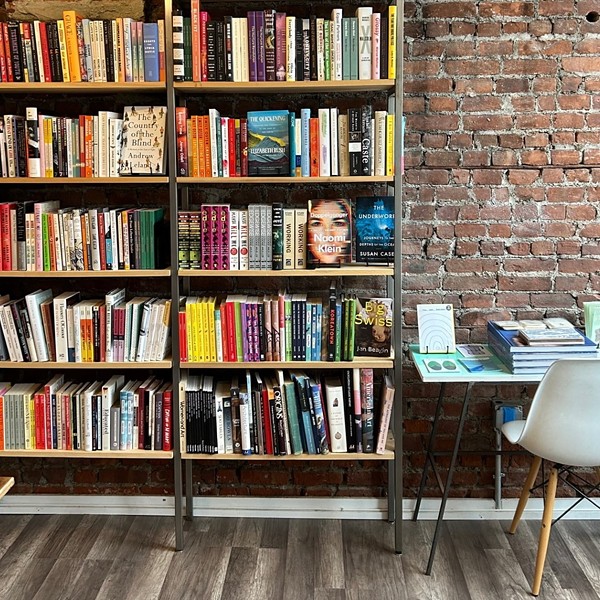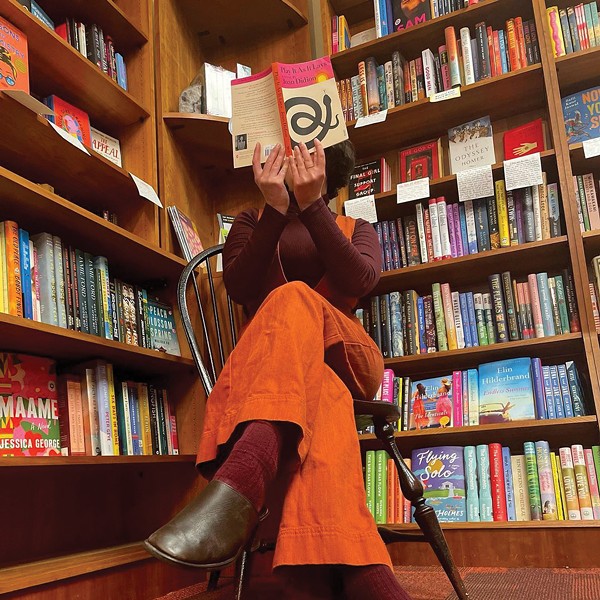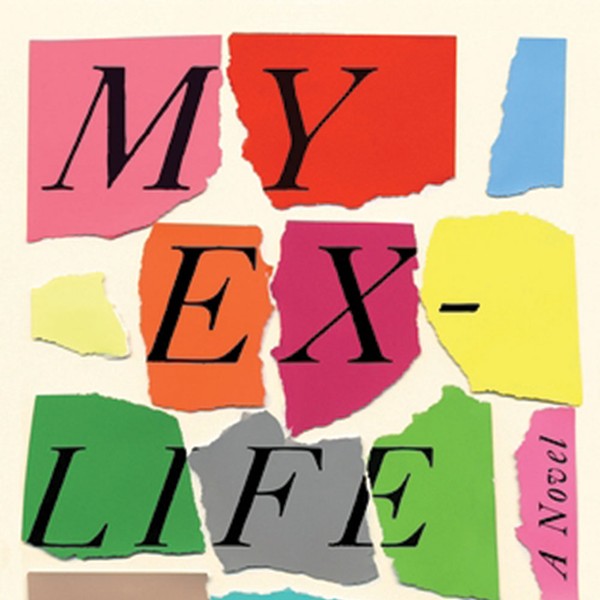"Oh, we got the new Jim Harrison?" Kellachan beams, pausing to pick up a book on her way to the door. "The cover is gorgeous. I'm glad we got five of them."
"The holiday season is our busiest retail month. You want everyone to buy books, but you also want to have every book on the shelves," she explains, walking past Golden Notebook's award-winning window display (drawings by Thorneater Comics' Will Lytle) and crossing the street to the Garden Café. "Every year there's some big book that's the gift book everyone wants, and you don't know what it'll be."
Three winters ago, Kellachan had no clue about book sales patterns. An epidemiologist by training, she had not worked in retail, much less run a risky business like a small independent bookstore. The economy was in shambles, and alarmists touted the coming extinction of bookstores (if not printed books) as online retail and e-books eroded their turf.
It wasn't just smoke-blowing: More than 500 independent bookstores closed between 2002 and 2011. But a counter-narrative started emerging as veteran booksellers found ways to boost business with in-store cafes, online ordering, Kobo e-readers, author events, and community outreach, while a new generation stepped in to launch start-ups. Kellachan remembers reading a 2010 New York magazine piece about second-wave Brooklyn bookstores like Greenlight and Word, whose owners found creative ways to finance with grants and investors.
She'd been working in New York City public health for nearly two decades, researching the spread of SARS, West Nile virus, and an outbreak of mumps in Brooklyn's Hasidic community; her husband Paul McMenemy was in finance. They'd owned a home in Bearsville since 1997, moving upstate full-time after their third son was born. (Cole is now 9; his brothers Lucian and Caleb 11 and 12.)
While raising three children, Kellachan continued consulting part-time, eventually taking a full-time job at the New York State Board of Health in Albany. She loved her work ("There's nothing more interesting—and sometimes horrifying—than how a disease breaks out, and I was telling that story in lots of detail"), but the daily commute was a strain.
An avid reader since childhood, when she rode her bike to the Larchmont Public Library, Kellachan was distressed to learn that Shapiro and Samuels were selling their beloved bookstore. Golden Notebook had weathered hard times—sales dropped by 50 percent between 2002 and 2006, as Barnes & Noble opened a big-box franchise in Kingston, and Amazon's ruthless price-cutting lured more and more readers online—but Shapiro was ill, and they needed a buyer. McMenemy and Kellachan met with them, and within a few weeks, they had "a handshake deal."

















